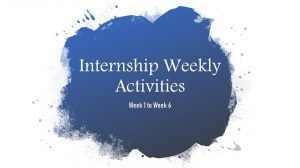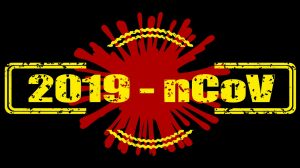Want to establish your authority on cutting-edge topics? Practicing thought leadership can boost your career or business. Let’s explore best practices for positioning yourself as a forward-thinking leader that audiences value.
What is Thought Leadership?
Thought leadership refers to educating audiences by creating original perspectives and visionary ideas on complex issues they care about. By generously sharing unique insights, thought leaders engage followers, nurture loyalty, shape agendas, and direct industries into the future.
Rather than promoting products per se, compelling thought leaders:
Introduce progressive concepts Challenge assumptions Frame problems in enlightening ways Inspire imaginative solutions Motivate innovation Spark important conversations
They combine communication talents, prescient knowledge, and authentic passions for driving change.
Why Thought Leadership Matters
Offering wisdom builds connections and trust. Organizations and professional thought leaders that consistently inspire audiences to expand their thinking gain significant influence through:
Enhanced brand authority and visibility – Regular discovery of cutting-edge ideas or commenting on trends asserts your preeminence. Become the expert audiences rely on. Increased lead generation – Demonstrating deep expertise and concern for helping industries progress attracts potential partners, affiliates, investors and buyers. Career advancement – Positioning yourself as an intellectual pioneer gets noticed. Expand your platform speaking at prominent conferences. Higher profits – Provocative books, premium courses, consultancy and renewed passion for problem-solving can all convert followers into paying customers.
How to Show Thought Leadership
Becoming recognized as an original thinker yourself involves:
Cultivating vision
Rather than reacting to daily headlines, pull back to assess root dynamics shifting industries from 30,000 feet up. What thought-provoking changes or pain points will disrupt status quos next that you can speak on? Frame overlooked challenges in forward-looking ways.
Creating compelling content
Bring concepts to life across many formats:
Books/ebooks Articles Research papers Videos Podcasts Start lively discussions with unconventional opinions.
Ensure substance offers truly unique, actionable value examining all angles. Caveat common ideas lacking nuance or vision.
Establishing your “so what”
Persuade audiences why insights merit attention amid information overload. Connect vital dots informing strategy they hadn’t considered before. Make your imperative and authority clear answering:
What fresh, urgent perspectives do I provide? Why should anyone care what I think or say? What positive impact can I make sharing this?
Credible networking and sharing
Earn opportunities to engage ever widening circles:
Comment on industry blogs Speak at prominent conferences Author articles for respected publications Get interviewed in targeted media Address legislative committees
Discuss findings respectfully via all channels, inviting dialogue and emphasizing service.
Ongoing improvement
The most credible thought leaders exemplify perpetual growth mindsets themselves. Continually broaden your knowledge across disciplines to transform complex challenges into
ethical opportunities.
Refresh content demonstrating how you also question assumptions, integrate evidencebased feedback, and evolve wiser policies improving life.
Key Issues Driving Thought Leadership Today
Many fields need unifying voices making sense of dynamic change:
Technology Ethics – Guide technology deployment balancing promise with risks as AI transforms society
Diversity, Equity & Inclusion – Champion pluralism and educate on overcoming systemic prejudices.
Globalization – Contextualize accelerating interconnectedness between societies and economic/environmental systems.
Public Health – Apply science translation talents clarifying medical research and best policy practices.
Sustainability – Define paths valuing ecology, economic fairness and community resilience simultaneously
The Future of Education – Rethink instruction approaches and credentialing models aligned with 21st century careers.
The Creator Economy – Analyze technology democratizing economic access for entrepreneur creators.
Web 3.0 and Cryptocurrency – Weigh promises against volatility as blockchain technologies get implemented.
Positive Psychology – Explore data on evidence-based human thriving strategies enhancing wellbeing.
And More – Fresh angles welcome on ethics, civics, inclusion, creativity, productivity, aging, global development…
In times of dizzying change, we need thought leaders across disciplines teaching complex ideas with compassion and 20/20 foresight. Progress depends on elevating understandings today guiding a better tomorrow. Who will you inspire?
Conclusion
The thought leaders best able to stir curiosity, convey clarity and champion needed growth display consistent qualities setting them apart as sought-after sages:
They explore issues thoroughly from many expert angles before forming independent viewpoints.
They question prevailing assumptions and study data dispassionately while acknowledging context.
They frame novel ideas around human values like dignity, compassion, responsibility and redemption – not just efficiency or profit
They influence more through hope than fear, empower more than shame, and lift others as they rise.
The coming decades promise profound change. May diverse wisdom leadership guide transitions embracing our shared hopes over hype…with minds open, hearts clearer, and hands extended.
Frequently Asked Questions
Q: How does thought leadership differ from personal branding?
A: Thought leadership focuses more on educating audiences with original ideas to advance industries vs promoting oneself per se. It generously shares insights addressing real issues vs merely building a personal fanbase.
Q: What are components of compelling thought leadership content?
A: Impactful thought leadership takes complex topics and examines them from refreshing angles. It translates jargon, provides unexpected evidence counter to assumptions, raises ongoing discussion questions, offers concrete guidance, and frames issues around human values over hype.
Q: What are some important thought leadership communication channels?
A: Getting your insights multiplied across quality podcast interviews, writing guest columns in industry trades or targeted blogs, speaking at high-profile conferences, providing reliable media commentary during news cycles, and authoring books expanding concepts are all vital.
Q: How can I become a better thought leader over time?
A: Keep learning with an open, growth mindset from broad perspectives. Embrace feedback improving products and analysis. Share updated evidence-based ideas fluidly as contexts evolve over your career inspiring audiences through new economic and technology paradigm shifts.
Q: What are telltale signs of poor thought leadership I should avoid?
A: Superficial commentary lacking depth or vision signals immature thinking to avoid. So does reactionary remarks instead of reasoned assessments. Pandering to emotions over logic undermines credibility fast. As does chasing sensationalism without substance just to gain attention as priorities shift with fam
.
































Add Comment